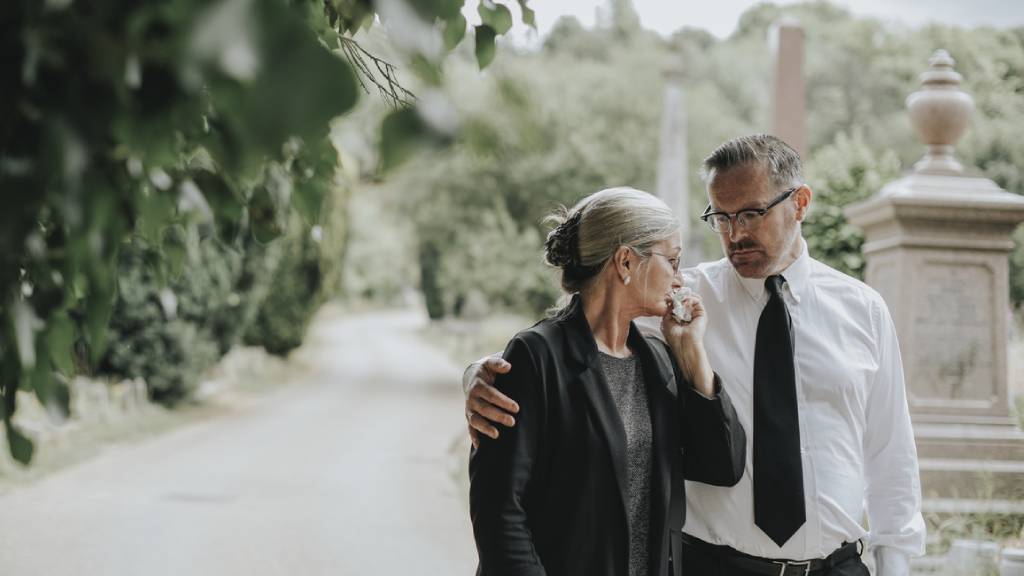Funeral attendance etiquette

The loss of a friend, colleague, relative or loved one is difficult to go through, and for many of us, attending a funeral service can be an added cause of anxiety. With so many different styles and traditions it is difficult to be sure of what will happen on the day and of the appropriate actions to take. But funerals are an important part of the grieving process, giving people an opportunity to say farewell and to pay their respects to the family.
To help, we have put together a funeral attendance guide so you can be sure that your personal conduct is appropriate and respectful. It is not easy to farewell someone close to you, but saying goodbye can be a little easier when you are confident of what to say and do at the funeral service.
Arrival
Try to arrive at the funeral service at least 15 minutes before it is scheduled to start. This will give you time to park your car, greet relatives and friends and be seated in time for the ceremony to begin. Your readiness to be part of the proceedings will be seen as a mark of respect for the person who is being laid to rest and will help the loved ones as well as the funeral director to keep to their schedule for the day.
It is important to remember that the relatives and close friends will be in the front rows at a funeral service. If you are not part of this group, take a seat further towards the back of the room, leaving space for the primary mourners.
Clothing
While wearing black is no longer a requirement at most funerals, it is still good practice to wear neat, modest, plain-coloured clothing that is not too casual. Be aware that brightly coloured or unusual apparel may draw attention to you and be considered inappropriate or even disrespectful. If you are attending a funeral of a faith or ethnicity that is unfamiliar to you, then it is a good idea to seek further information about specific funeral traditions. The funeral director responsible for the ceremony is a good person to ask. Otherwise, contact a religious or cultural organisation with knowledge and understanding of the relevant customs.
Knowing what to say
Sometimes, when people are very upset about the loss of a loved one, it can be difficult to find the right words to comfort them. If you are in doubt or feel awkward, just keep it simple. Try something like “Mary and I were colleagues at XYZ. She was a lovely person. I am so sorry for your loss.” If this is too difficult, simply saying “I am so sorry for your loss” is perfectly fine.
Crying
It is quite acceptable to show sadness and to cry at a funeral. However, if you find you are so upset that attention is directed towards you and away from the closest of kin, take a break, go outside and return to the service once you have regained control of your emotions. Drink water, breathe deeply or go for a short walk if you need to calm down.
The wake
The purpose of a wake is to celebrate the life of a person who has passed away and will usually include food, drinks and sometimes speeches. But remember, it is still a commemoration of a life lost and the focus should be on the grieving relatives. Ensure that you approach the family on arrival and offer them your condolences.
Helping the bereaved
If you want to help those mourning the loss of a loved one it is best to be specific. Try to imagine what their particular needs might be. You could provide help with meal preparation, child care or pet care, or communicate important information to relatives and friends about the funeral arrangements and related activities. You could also offer to drive the bereaved to appointments or run errands in the days before and after the funeral when they might prefer not to drive themselves. Rest assured that most people will be very grateful for your kindness and to have been offered care and support during their time of loss.
Attending a funeral is a difficult but important part of the grieving process. Just remember, by being there you are expressing your sympathy and support to the next of kin and showing respect for the person who has passed away.
If you are interested in learning about your funeral insurance options, request an information pack or get a quick quote online.
25 May 2015